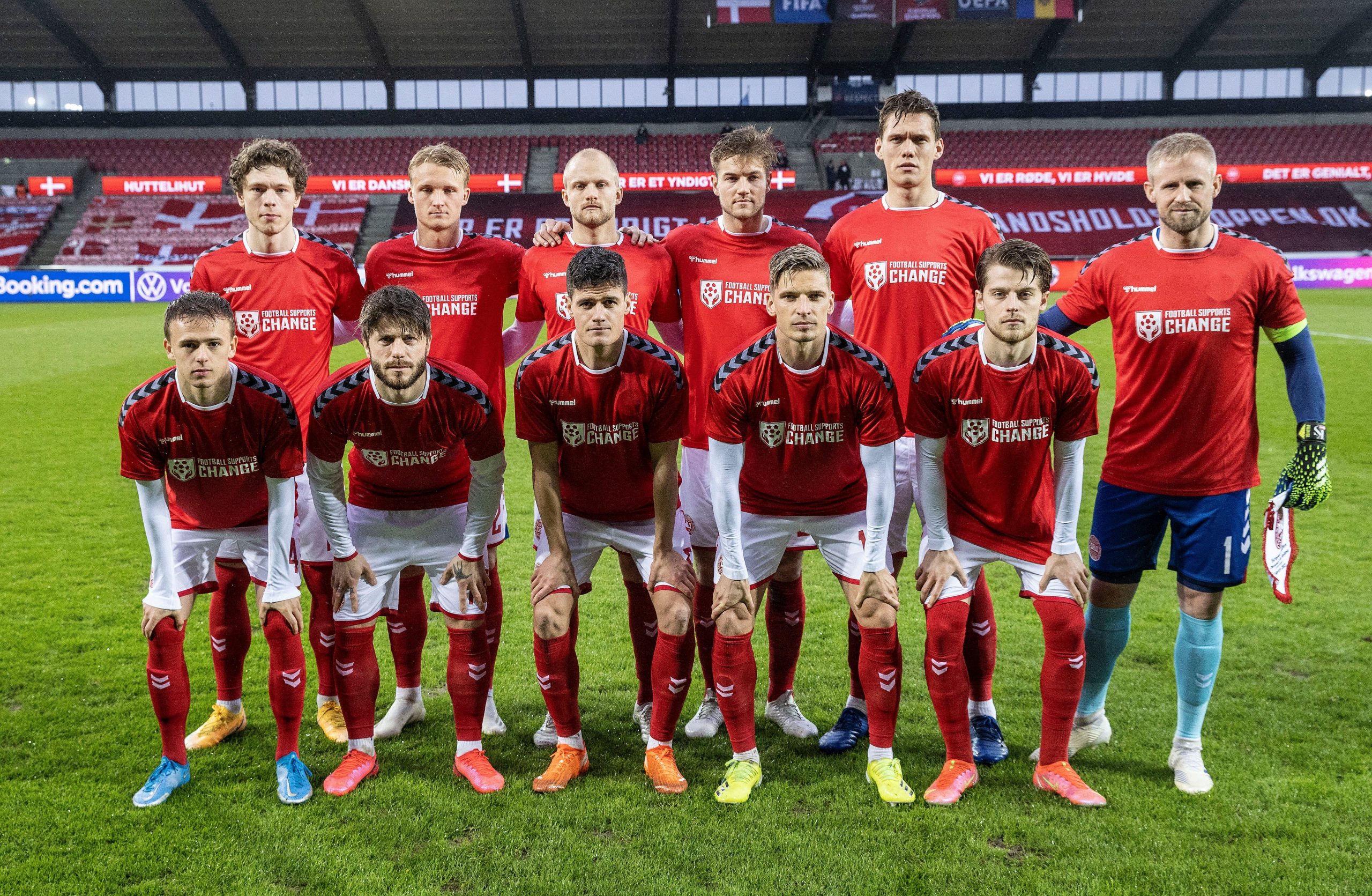Denmark has been at the forefront of a campaign criticising Qatar’s hosting of the FIFA World Cup.
The Danish national team has been denied a request by FIFA to train in shirts emblazoned with a political message during their time in Qatar for the World Cup, newswire Ritzau reported.
Denmark had approached FIFA to allow its national team players to wear shirts imprinted with the words ‘Human Rights for All’, but has been rejected by global footballing body.
Responding to the decision, the Danish football association said it“regrets” FIFA’s rejection, Chief Executive Officer Jakob Jensen told Ritzau.
Qatar has been placed under international scrutiny over its treatment of migrant workers ever since it won the bid to host the first FIFA World Cup event in the Middle East.
This saw the onset of several calls for boycott, with Norway initiating the movement in Europe before other nations from the region followed suit.
England, alongside nine other European nations, recently announced it will support a new ‘One Love’ campaign promoting ‘inclusion and equality’ at this year’s World Cup in Qatar.
The initiative, created by the Netherlands, will also be supported by Belgium, Denmark, France, Germany, Norway, Sweden, Switzerland and Wales, aiming to “send a message against discrimination of any kind as the eyes of the world fall on the global game,” the English Football Association (FA) said in a statement earlier this month.
More recently, authorities in Qatar denounced Denmark for “trivialising” the Gulf state’s “commitment to protect the health and safety of the 30,000 workers who built FIFA World Cup stadiums and other tournament projects.”
The statement was in response to Denmark’s unveiling of its national football kit for the World Cup – “toned down” jerseys to protest Qatar’s human rights record and support migrant workers in Qatar.
“We don’t wish to be visible during a tournament that has cost thousands of people their lives. We support the Danish national team all the way, but that isn’t the same as supporting Qatar as a host nation,” kit manufacturer Hummel announced in a statement earlier this year.
The third kit, which is all-black, symbolises the “colour of mourning”, the statement said. The Denmark badge has also been “toned down” on the other two kits: a simple maroon home shirt and an all-white away jersey.
Sponsors of Denmark’s training kit will also remove their logos to allegedly make room for criticism of Qatar.
Hummel’s statement claims the Danes do not wish to be visible in a tournament that “has cost thousands of lives” – appearing to cite a misleading Guardian report that incorrectly linked deaths of South Asian expats in the Gulf state to the World Cup.
Qatar officials have previously disputed the figures on the death of migrant workers working on World Cup facilities, saying the actual total figure at the time in 2021 was 37, and only three of which were “work-related”.
Last year, Denmark’s national football team took a stand against human rights abuses in Qatar during a match at the European qualifiers for the 2022 World Cup.
The Danish team wore t-shirts that said “Football supports change” before their game against Moldova, imitating the Dutch team who did the same a day earlier.
The Danish soccer federation said the shirts would be signed and auctioned to raise money for projects with Amnesty International that help migrant workers in Qatar, though it is unclear if that initiative went ahead.
Qatar 2022 target of ‘racism’
With the global spotlight being placed on the Middle East’s first ever FIFA World Cup, host nation Qatar has been the subject of incessant Western scrutiny over its human rights record. This prompted many, including top officials, to label such headlines as Islamophobic and racist.
Qatar’s Amir Sheikh Tamim bin Hamad Al Thani as well as other top Qatari officials have repeatedly slammed the “racism” behind the campaigns, especially since they have continued to emerge despite Qatar addressing concerns and launching major reforms.
Last month, the amir described the campaigns as “ferocious” and “malicious” and questioned intentions behind the criticism.
Echoing similar sentiments, Sheikh Mohammed also cited racism.
Speaking to Le Monde, the Qatari diplomat said he came across recent commentary that accused Qatar of not being “intellectually and culturally ready” to host the World Cup.
“Is such racism acceptable in Europe in the 21st century? Football belongs to everyone. It is not reserved for a club of elites. Four hundred and fifty million Arabs are delighted that the World Cup is finally being held in their region,” said Sheikh Mohammed.
More recently, the Chief Executive Officer of Qatar 2022 Nasser Al-Khater said on Monday that the campaign against Qatar and its hosting of the 2022 FIFA World Cup is linked to Europe’s refusal to see a country outside its region take on the tournament.
“European countries feel they have monopoly over the World Cup. Europe has hosted 11 tournaments out of 22 tournaments, of course it refuses that a country like Qatar or an Arab Muslim country hosts a tournament like the World Cup,” Al-Khater told Al Jazeera Arabic in a televised interview.
Meanwhile, the World Cup CEO added that Europe has long seen the Arab world as a conflict-ridden region, a depiction that has also been repeatedly highlighted in its media discourse.
This week, French outlet Le Canard Enchaîné has come under fire for publishing a caricature depicting Arabs in ‘Qatar’ football kits as terrorists. The image employs the exhausted use of ‘savages’ – ‘long bearded’ angry men with dark hair, angry expressions in possession of guns and knives.
However, Al-Khater believes the World Cup will debunk such images portrayed by Europe.
When asked about Qatar’s strategy in responding to the ongoing criticism, Al-Khater said that some were worth responding to while others were unworthy of an official address.
“For us, the success of the World Cup is a priority,” he said.







